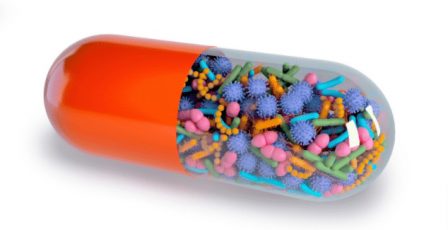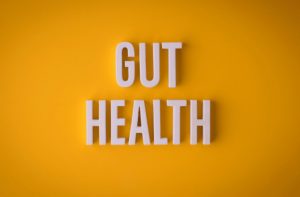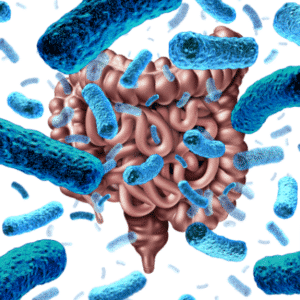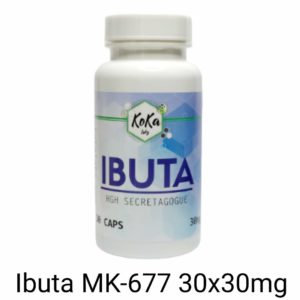
Probiotics when and how to take them
Probiotics when and how to take them
For a long time now, there has been much talk about probiotics, whose task is to support the intestinal microflora. As it is already widely known, the intestines’ condition largely determines the well-being and health of the whole body. It is even commonly said that the intestines are the second brain, which is much right. Unfortunately, many people struggle with various unpleasant ailments due to intestinal dysbiosis, contributing to their improper lifestyle. A poorly balanced diet is one of the leading causes of health problems. Consumption of highly processed products rich in sugar causes an overgrowth of pathogens, primarily Candida Albicans. Antibiotic therapy is also often a problem. The list could go on, but it is time to introduce beneficial bacteria into the body, which probiotics help with.
 Why are probiotics so important?
Why are probiotics so important?
Adequate intake of probiotics and prebiotics in the diet promotes well-being and health. Probiotics are microorganisms, commonly known as good bacteria. They reside naturally in the intestines, inhabit the gastrointestinal tract, and are necessary to absorb nutrients from the food we eat properly. A prebiotic, on the other hand, provides a medium for probiotics. With probiotic therapy, it is possible to maintain or restore a diverse intestinal flora and provide protection against pathogenic bacteria. Probiotics reduce the risk of developing allergies and autoimmune diseases. They regulate intestinal function and alleviate unpleasant symptoms associated with irritable bowel. They are invaluable in diarrhea; they eliminate inflammation responsible for the formation of multiple diseases. Suppose there are not enough beneficial bacteria in the intestines and there is an overgrowth of pathogenic ones. In that case, one has to reckon with several consequences, including loss of health.
 Probiotics can be supplied to the body both in the form of food and a dietary supplement. Their appropriate amounts have a positive impact on human health. Their deficiency is a simple way to prevent problems with the intestinal passage, overgrowth of pathogenic microorganisms, penetration of pathogenic microorganisms, and pathogens to the intestinal walls. Interestingly, probiotics are essential not only for a smoothly functioning digestive system but also for the immune and reproductive systems – the vagina also contains several bacterial strains. There is a reason why gynecological probiotics are used for bacterial and fungal infections of the female genital tract. A depleted microbiome contributes to many undesirable side effects – diarrhea, nausea, indigestion, ringworm, fatigue, skin lesions, itching, weakened immune system, and increased susceptibility to infections.
Probiotics can be supplied to the body both in the form of food and a dietary supplement. Their appropriate amounts have a positive impact on human health. Their deficiency is a simple way to prevent problems with the intestinal passage, overgrowth of pathogenic microorganisms, penetration of pathogenic microorganisms, and pathogens to the intestinal walls. Interestingly, probiotics are essential not only for a smoothly functioning digestive system but also for the immune and reproductive systems – the vagina also contains several bacterial strains. There is a reason why gynecological probiotics are used for bacterial and fungal infections of the female genital tract. A depleted microbiome contributes to many undesirable side effects – diarrhea, nausea, indigestion, ringworm, fatigue, skin lesions, itching, weakened immune system, and increased susceptibility to infections.
When to take probiotics?
Everyone needs probiotics; they should be supplied to the body with food, i.e., in a natural form. Prevention is better than cure, so prevention is essential. You do not have to struggle with any disease to reap the numerous benefits of probiotic therapy. It is worth reaching for them in the case of an unbalanced diet, susceptibility to infections – they will strengthen the immune system, thanks to which it will effectively defend the body against pathogenic microorganisms. Probiotics are invaluable for intestinal dysbiosis. Many factors cause intestinal flora disorders. They result primarily from leading an improper lifestyle – poor nutrition, sleep deficit, stress. Taking certain medications, chronic infections, and antibiotic therapy also hurt the microbiome. It is important to remember that intestinal dysbiosis is not limited to unpleasant complaints from the gastrointestinal tract. Most often, it is accompanied by several other diseases of a chronic nature.
 Probiotics are recommended for obese people, which requires selecting appropriate strains of bacteria in consultation with a doctor. With their help, one can support the process of weight loss and maintain proper body weight. If someone wants to get rid of the excess weight, it is worth thinking about probiotic therapy, which will make it easier. Probiotics can be given to children, even to premature babies, which positively influences their proper development. They are used for diarrhea, irritable bowel syndrome, Crohn’s disease, intimate infections and urinary tract infections, allergic reactions, atopic dermatitis, hypercholesterolemia, gingivitis, colic, kidney stones, liver disease, lactose intolerance, autism, colon cancer. With the help of specific strains of bacteria, it is possible to fight Helicobacter pylori infection, support the treatment of atopy and allergies.
Probiotics are recommended for obese people, which requires selecting appropriate strains of bacteria in consultation with a doctor. With their help, one can support the process of weight loss and maintain proper body weight. If someone wants to get rid of the excess weight, it is worth thinking about probiotic therapy, which will make it easier. Probiotics can be given to children, even to premature babies, which positively influences their proper development. They are used for diarrhea, irritable bowel syndrome, Crohn’s disease, intimate infections and urinary tract infections, allergic reactions, atopic dermatitis, hypercholesterolemia, gingivitis, colic, kidney stones, liver disease, lactose intolerance, autism, colon cancer. With the help of specific strains of bacteria, it is possible to fight Helicobacter pylori infection, support the treatment of atopy and allergies.
How to take probiotics?
There is no single probiotic dose that is right for everyone because every person is different. It should be selected according to individual needs and health status, that is, in consultation with your doctor. Depending on whether probiotics are to be used prophylactically or therapeutically, you should reach a different dose. Natural probiotics should be taken first, in the form of natural yogurt, kefir, curdled milk, buttermilk, pickled fruits and vegetables, raw cheese, kimchi, kombucha, fermented soy products (natto, miso, soy sauce, tempeh), Rejuvelac, unpasteurized apple cider vinegar, sourdough bread, beet sourdough. It is obtained that the daily dose of live bacteria cultures should have an average of one to ten billion. It is not only the number of bacteria that matters but also their type and viability.



